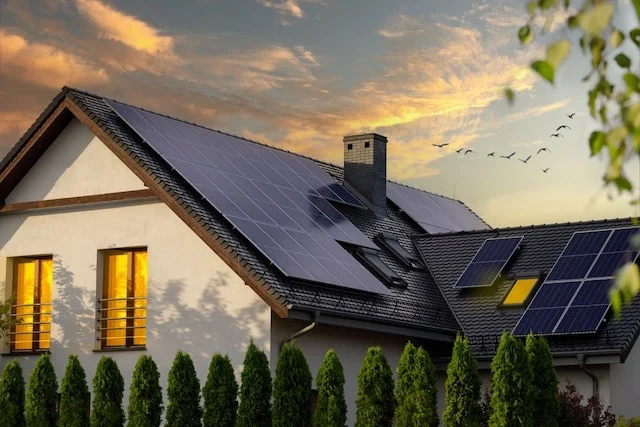The rise of solar rooftops and home EV charging
As we move toward a greener world, an increasing number of homeowners are installing solar panels on their roofs, providing their homes with 100% renewable and 100% free electricity. These same solar panel arrays can also be used to charge electric vehicles via a household AC charger. This is especially important as many EV drivers recharge their cars at home, and environmental concerns are a major factor in the decision to switch to electric mobility.
One of the most accessible and effective ways to reduce your carbon footprint as an EV owner is to consider installing solar power at home to recharge your car. Before making the investment, however, it’s wise to understand just how efficient solar EV charging is. This article dives into one of the most common questions among EV drivers: How fast can you charge an EV using solar panels at home?
Solar panel EV charging: Getting to grips with the basics
To understand the speeds associated with EV solar charging at home, it's essential to grasp how solar panels work. When sunlight hits the semiconductor materials in solar panel cells, it generates electrons, creating a current. This DC current is then amplified and either stored in batteries or converted to AC for use in the home, which can be channeled through an EV home charger to recharge your car.
Several factors affect the electricity generated by solar panels, including the direction they face, the angle at which they're tilted, shading, panel quality, solar insolation, and panel efficiency. Many of these factors vary daily, so pairing solar panels with an energy management system (EMS) could be beneficial. An EMS combined with an EV home charger can help regulate and manage the peaks and troughs of solar energy output.

Calculating solar power generation
Determining how much electricity your solar panel array will generate depends on several variables. For example, a 300W solar panel in Mexico City, receiving 6.02 peak sun hours per day, can generate around 1.35kWh per day. A 10-panel array would produce 13.5kWh daily. However, this varies based on location, with higher peak sun hours leading to greater energy production.
Other appliances in your home also use solar-generated electricity, which means the energy available for your EV may be reduced. Home energy management systems or smart charging station features can help optimize energy use, ensuring that your self-generated solar energy is effectively used for your electric car.

Estimating charging times: Calculating how fast you can charge a car with solar panels
To estimate how long it will take for your solar panel array to charge your car, you need the following figures: the average daily power output of your solar array, the power output setting of your home AC charger, the battery size of your EV, your average daily mileage, and your car's average energy consumption per mile.
- P1 = Average daily power output of your solar array
- P2 = Power output setting of your home AC charger
- B1 = Battery size of your EV
- M1 = Average daily mileage
- M2 = Average energy consumption per mile
Using these figures, you can determine how fast your solar panels will recharge your EV. For instance, if your solar array produces 8.5 kWh daily and your EV requires 12% of its battery capacity daily, it would take about 2.25 hours of solar charging to replenish your EV.

Solar EV charging: 5 factors which affect solar charging speeds for electric cars
Several factors influence how quickly you can charge your EV using solar panels. These include the size of your EV's battery, the battery's charging capacity, the charge requirement, weather conditions, and the output of your home charger and solar array. Understanding these factors can help you maximize the efficiency of your solar EV charging setup.

Conclusion: Is solar EV charging worth it?
While some popular EV models can be recharged on a daily basis using solar power alone, others may require multiple days of solar EV charging. Fortunately, you don't always need to rely solely on solar power. You can combine it with grid electricity to recharge your EV more efficiently while still saving money and reducing your carbon footprint.
Additionally, integrating battery storage can increase the viability of your solar-powered EV home-charging setup, allowing you to use renewable energy whenever needed. Hopefully, this guide has shown that solar panel charging is a cost-saving, effective, and sustainable way to charge your EV. To continue learning more about home solar EV charging, visit our blog.




